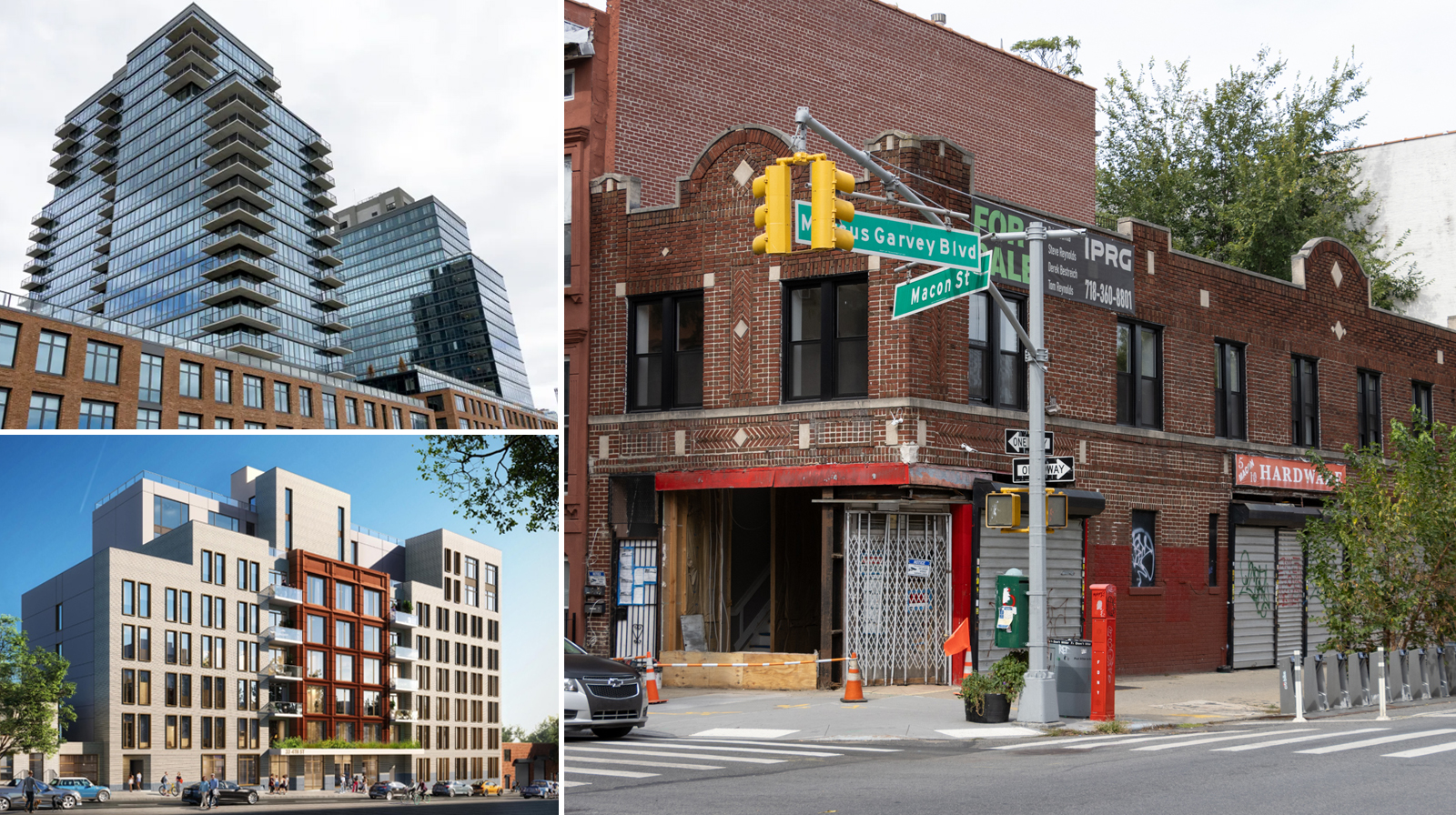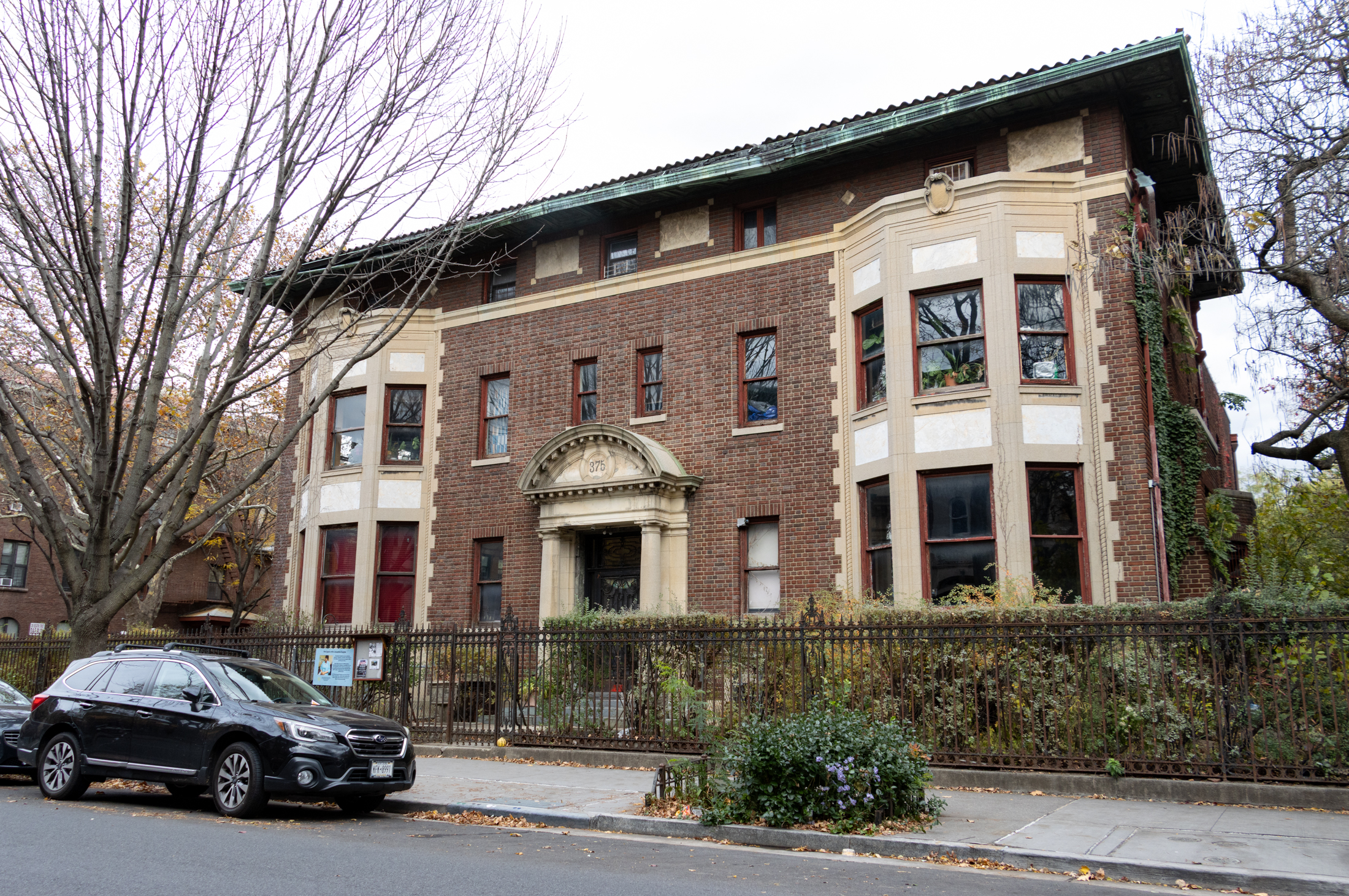Heights Rent-Controller Out on a Technicality
“Rob a bank, and if the federal government doesn’t catch you in five years, you’re off the hook,” said Josh Barbanel in a Times story this weekend, but for Robert Nocco, no statute of limitations could save him: the new owner was able to rummage back to 1976 to challenge Nocco’s right to a rent-controlled…

 “Rob a bank, and if the federal government doesn’t catch you in five years, you’re off the hook,” said Josh Barbanel in a Times story this weekend, but for Robert Nocco, no statute of limitations could save him: the new owner was able to rummage back to 1976 to challenge Nocco’s right to a rent-controlled apartment in Brooklyn Heights, at 222 Henry Street. Mr. Nocco’s parents moved into the apartment about fifty years ago, the article explains, and until June, Mr. Nocco, who was paying $212 in rent every month, had thwarted several legal attempts to remove him from the apartment. The current owner (who paid $386,566 for the five-story building in 2005, according to Property Shark) took his case to state housing regulators and noted that in 1976, Mr. Nocco rented another apartment in Brooklyn, while his parents moved to Florida. Since regulations would require Mr. Nocco to have lived with his parents for two years prior to taking over a rent-controlled apartment, this was enough for a housing officer to rule in the landlord’s favor. The two parties reached a settlement (in the very low six figures), and Mr. Nocco moved out in June.
“Rob a bank, and if the federal government doesn’t catch you in five years, you’re off the hook,” said Josh Barbanel in a Times story this weekend, but for Robert Nocco, no statute of limitations could save him: the new owner was able to rummage back to 1976 to challenge Nocco’s right to a rent-controlled apartment in Brooklyn Heights, at 222 Henry Street. Mr. Nocco’s parents moved into the apartment about fifty years ago, the article explains, and until June, Mr. Nocco, who was paying $212 in rent every month, had thwarted several legal attempts to remove him from the apartment. The current owner (who paid $386,566 for the five-story building in 2005, according to Property Shark) took his case to state housing regulators and noted that in 1976, Mr. Nocco rented another apartment in Brooklyn, while his parents moved to Florida. Since regulations would require Mr. Nocco to have lived with his parents for two years prior to taking over a rent-controlled apartment, this was enough for a housing officer to rule in the landlord’s favor. The two parties reached a settlement (in the very low six figures), and Mr. Nocco moved out in June.
Rent-Control Rights Stripped Away [NY Times]





Kris – please explain to all of us dummies how “eventually all the RC and RS tenants leave”? – b/c as far as I know there is no vacancy decontrol – only a rent level decontrol @ vacancy
courts didn’t find in his favor. it was the housing authorities – an administrative decision that the tenant probably had some avenue to appeal or review in housing court, where a win for the LL was far from guaranteed. from the article, it appears both sides calculated that litigation risk – issues with locating and the admissibility of favorable evidence, litigation costs, tenant-friendly courts, etc., made it worth the $100K for both sides to settle.
When rent control / stabilization started, the rents were already in place at market value. They were not artificially lowered, as lechacal implies. The problem is that stabilized rents haven’t risen on par with market rents – not even close. The original idea was to protect tenants from landlords jacking up the rent unreasonably and unfairly. While I agree it is a poorly designed system to say the least, landlords really haven’t been screwed by it. Anyone buying a building with below market / rent stabilized tenants knows what they are getting into and pays considerably less for the property. Taxes are lower, too, based on rent roll.
And eventually all the RC and RS tenants are gone. Since there is an effective vacancy decontrol in effect, the landlords are the ones who reap the most benefit, like the one in this story.
“If the courts found in the LL’s favor, why did the LL have to pay the tenant “in the low six figures” to move?”
Insurance against the possibility of the ruling being overturned and being able to avoid the hassle and annoyance of having to fight this for another few years.
If the courts found in the LL’s favor, why did the LL have to pay the tenant “in the low six figures” to move?
This owner was recently in the NY Times in a couple of other stories, one being he negotiated the sale of a $15MM brownstone on the UWS to Bob Weinstein. I assume his commission on that one sale more than covered the payment to get rid of this tenant.
http://www.nytimes.com/2009/06/14/realestate/14deal2.html
Screw this tenant. Screw all rent controlled tenants. What, I’m supposed to feel bad for him because now – *gasp* – he’s going to have to pay market like the rest of us? Rent control was a cheap trick to make a one-time wealth transfer from owners to whoever was renting at the time the laws took effect. I applaud any and all attempts by owners to claw back what is rightfully theirs.
the 2005 seller is listed as st. george realty LLC, which appears to be the operating entity of george spanakos, who owns a bunch of properties under his own and corporate names in brooklyn heights. my guess is mr. guerrieri’s and mr. spanakos’ mutual involvement in the townhouse business led to a deal on this place that appears to have been not quite arm’s length.
i do love guerrieri’s lawyer’s faux-naive surprise at having to pay the RC tenant a settlement despite a victory with housing authorities. shocked, absolutely shocked he was, i’m sure.
Rob I have no issue with Sec 8 as a program (I do with its administration) – if the Government choses to subsidize the poor or lower income in our society I have no issue with that and if done properly (which it isnt) it is a good idea.
Pete – while RC does have periodic increases the administrative costs of applying for them is fairly high (for tiny increases) so many small LL dont file for the increases and you end up with guys like this with a $200 a mo rent.